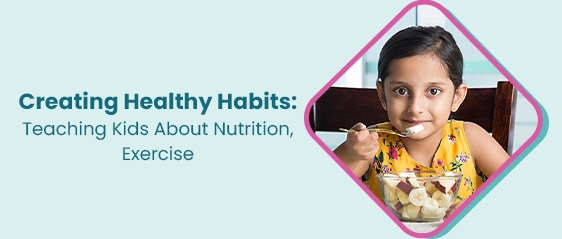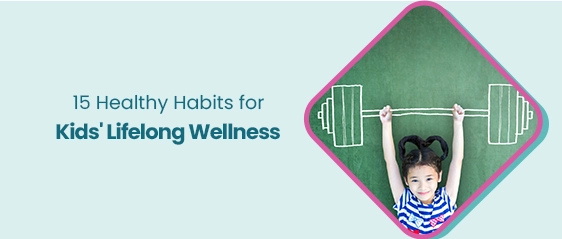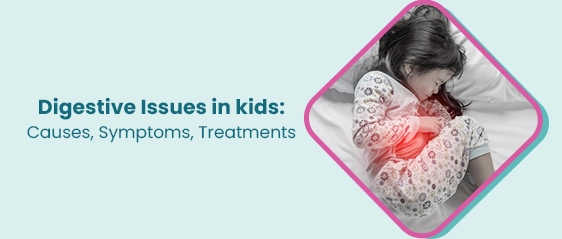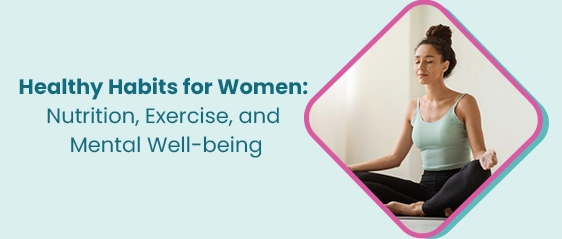
How to Teach Kids About Nutrition and Exercise?
- 14 Aug 2023
Instilling healthy habits in children from an early age sets the foundation for a lifetime of well-being. Teaching kids about proper nutrition, regular exercise, and good hygiene helps them stay physically healthy and promotes mental and emotional growth. This comprehensive explores effective strategies and practical tips for parents and caregivers to educate kids-nutrition these essential aspects of a healthy lifestyle.
Teaching Kids About Nutrition:
- Introduce the concept of food groups: grains, fruits, vegetables, protein, and dairy.
- Explain the importance of a balanced diet for growth, energy, and overall health.
- Create a "rainbow plate" challenge, where kids aim to include colourful fruits and vegetables in every meal.
- Turn meal preparation into a fun activity by involving kids in choosing ingredients and helping in the kitchen.
- Teach kids the difference between nutritious snacks (fruits, yoghurt, nuts) and occasional treats (cookies, chips).
- Encourage portion control and mindful eating to avoid overconsumption.
Start with the Basics:
Make Learning Fun:
Healthy Snacking:
Instilling the Love for Exercise:
- Engage in regular physical activity yourself to demonstrate the importance of exercise.
- Plan family activities like nature walks, bike rides, or active games to enjoy together.
- Turn exercise into a game, like a dance party, a scavenger hunt, or an obstacle course.
- Enrol kids in sports or classes that interest them, such as swimming, soccer, or dance.
- Set limits on screen time and encourage outdoor play and other active pursuits.
- Teach kids that physical activity can be just as enjoyable as screen entertainment.
Lead by Example:
Make Exercise Playful:
Screen Time Management:
Promoting Good Hygiene Practices:
- Teach kids the proper way to wash hands, emphasizing before meals, after using the restroom, and when returning home.
- Explain how handwashing helps prevent the spread of germs and keeps them healthy.
- Introduce regular brushing and flossing routines to maintain oral health.
- Make dental care enjoyable with colorful toothbrushes, fun-flavored toothpaste, and rewards for consistent habits.
- Establish a routine for regular bathing, hair care, and nail trimming.
- Explain that good grooming not only keeps them clean but also helps them.
Handwashing Importance:
Dental Care:
Bathing and Grooming:
Case Study 1: Balanced Nutrition for Growth and Energy
- Healthy Choices: Sarah, a 7-year-old, learns about different food groups. She starts choosing colourful fruits and vegetables, understanding their benefits for energy and growth.
- Improved Concentration: As Sarah embraces balanced meals, her focus and attention improve at school, boosting her academic performance.
- Family Bonding: Sarah's family cooks meals together, strengthening their bond and creating positive memories.
- Picky Eating: Initially, Sarah may resist certain healthy foods, leading to mealtime challenges and potential frustration.
- Peer Influence: Outside influences may tempt Sarah to make less nutritious choices, requiring consistent guidance and support.
Advantages:
Disadvantages:
Case Study 2: Exercise as Play and Exploration
- Active Lifestyle: Jake, a 9-year-old, discovers a love for soccer. Regular practice keeps him fit and fosters a sense of discipline and teamwork.
- Boosted Confidence: As Jake improves his soccer skills, his self-esteem grows, positively impacting other areas of his life.
- Stress Relief: Engaging in physical activities allows Jake to release stress and unwind after a long day.
- Time Management: Jake's busy schedule may make it challenging to balance school, homework, and sports, requiring practical time management skills.
- Injury Risk: Intense physical activities can sometimes lead to minor injuries, emphasizing the need for proper supervision and safety precautions.
Advantages:
Disadvantages:
Case Study 3: Practicing Proper Hygiene
- Health Awareness: Emily, a 6-year-old, learns about handwashing. She adopts the habit, reducing the chances of illness transmission.
- Positive Self-Image: Emily's consistent hygiene practices, including dental care and grooming, enhance her self-confidence and social interactions.
- Healthy Habits: Emily's hygiene education extends to her family, improving overall well-being and reducing sick days.
- Resistance: Initially, Emily might resist certain hygiene routines, requiring patience and creativity to make them enjoyable.
- Peer Pressure: As Emily grows, external influences might challenge her commitment to good hygiene, Childhood obesity.
- Necessitating ongoing reinforcement.
Advantages:
Disadvantages:
Conclusion
Nurturing Lifelong Well-being Through Healthy Habits In the journey of parenting and caregiving, fostering healthy habits in children is a profound gift that paves the way for a vibrant and fulfilled life. As we conclude this exploration into teaching kids about nutrition, exercise, and hygiene, it's evident that these fundamental principles are the cornerstones of their overall well-being.
Frequently Asked Questions
Why is teaching kids about nutrition important?
Teaching kids about nutrition helps them understand the value of eating balanced meals for growth, energy, and overall health.
How can I make learning about nutrition fun for kids?
You can create a "rainbow plate" challenge, involve them in meal preparation, and introduce healthy foods through games and creative presentations.
What are the benefits of regular exercise for kids?
Regular exercise promotes physical fitness, boosts confidence, improves concentration, and helps kids manage stress.
How can I motivate my child to be more active?
Engage in active family activities, encourage sports or hobbies they enjoy, and limit screen time to promote physical activity.
What hygiene practices should I teach my child?
Teach handwashing, dental care, bathing, and proper grooming to ensure cleanliness and prevent illness.
How can I make hygiene routines enjoyable for kids?
Use colorful toothbrushes, make handwashing a fun activity, and establish routines with positive reinforcement.
How can I manage picky eating habits in my child?
Offer a variety of healthy foods, involve them in meal planning, and be patient as their tastes evolve.
How much screen time is appropriate for kids?
The American Academy of Pediatrics recommends limiting screen time to 1-2 hours per day for children aged 2-5 and encouraging physical activity instead.
What role does parental modeling play in teaching healthy habits?
Parents are role models, showcasing healthy behaviors and influencing children to adopt similar habits.
How can I address resistance or peer pressure when teaching these habits?
Open communication, explaining the benefits, and creating a supportive environment can help address resistance and peer pressure.
Are there resources available to teach kids about these habits?
Yes, there are books, online videos, and educational games designed to teach kids about nutrition, exercise, and hygiene in a fun and interactive way.
Should I consult a pediatrician before changing my child's habits?
Consulting a pediatrician can provide personalized guidance based on your child's age, health, and specific needs.
How can I create a routine incorporating these habits into my child's day?
Establish a daily schedule that includes designated meal times, exercise periods, and hygiene routines to make these habits a seamless part of their routine.
What are some easy and healthy snack options for kids?
Some healthy snack options include fruits, vegetables with dip, yoghurt, whole-grain crackers, and nuts (if age-appropriate).
How can I celebrate my child's progress in adopting these habits?
Celebrate milestones with positive reinforcement, praise, and small rewards to encourage your child's commitment to healthy habits.
Remember, these FAQs provide general information. Consider consulting with a healthcare professional or paediatrician for personalised advice and guidance.




